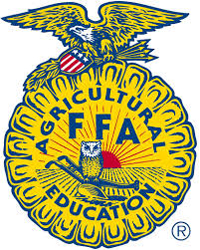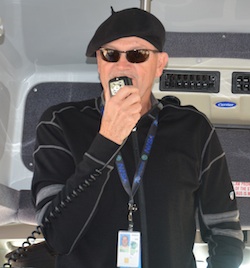 The New Holland Trade Center tent was packed full of ag company’s like Latham Hi-Tech Seed during the 2014 World Dairy Expo. I stopped by there booth to learn more about the family-owned company’s latest seed genetics and products.
The New Holland Trade Center tent was packed full of ag company’s like Latham Hi-Tech Seed during the 2014 World Dairy Expo. I stopped by there booth to learn more about the family-owned company’s latest seed genetics and products.
Corey Catt is a forage specialist for Latham and has been in the seed industry his entire career. “What I do is select good varieties and make sure we have the most high powered corn silage and alfalfa varieties out there for livestock producers. We want you to get the best bang for your buck. We also look at new technologies and innovations with our main goal being helping you produce healthier meat, milk and eggs for the consumer.”
In the dairy industry the main thing they are looking at is starch digestibility. Latham is looking at hybrids that have a low level of prolamin-zein, meaning the starch is available and digestible. Letting the producer know if a product has a very high level allows them to manage differently. In my interview with Corey, he also shares more about some other products they have coming out in the near future.
During the Expo, Corey said he could tell the temperature of farmers was really good. Milk prices are fairly stable and farmers have been able to restore some of the inventory lost over the past couple of years with some really good feed from this past season.
Listen to my complete interview with Corey here: [wpaudio url=”http://www.zimmcomm.biz/wdexpo/wde-14-lathem-catt.mp3″ text=”Interview with Corey Catt, Latham Hi-Tech Seed”]
Find all photos from the event here: 2014 World Dairy Expo Photo Album.










